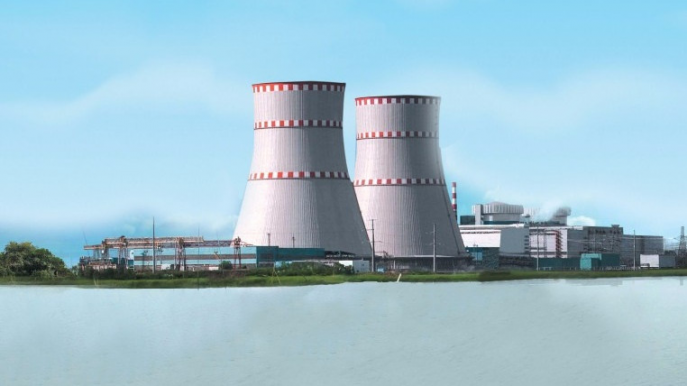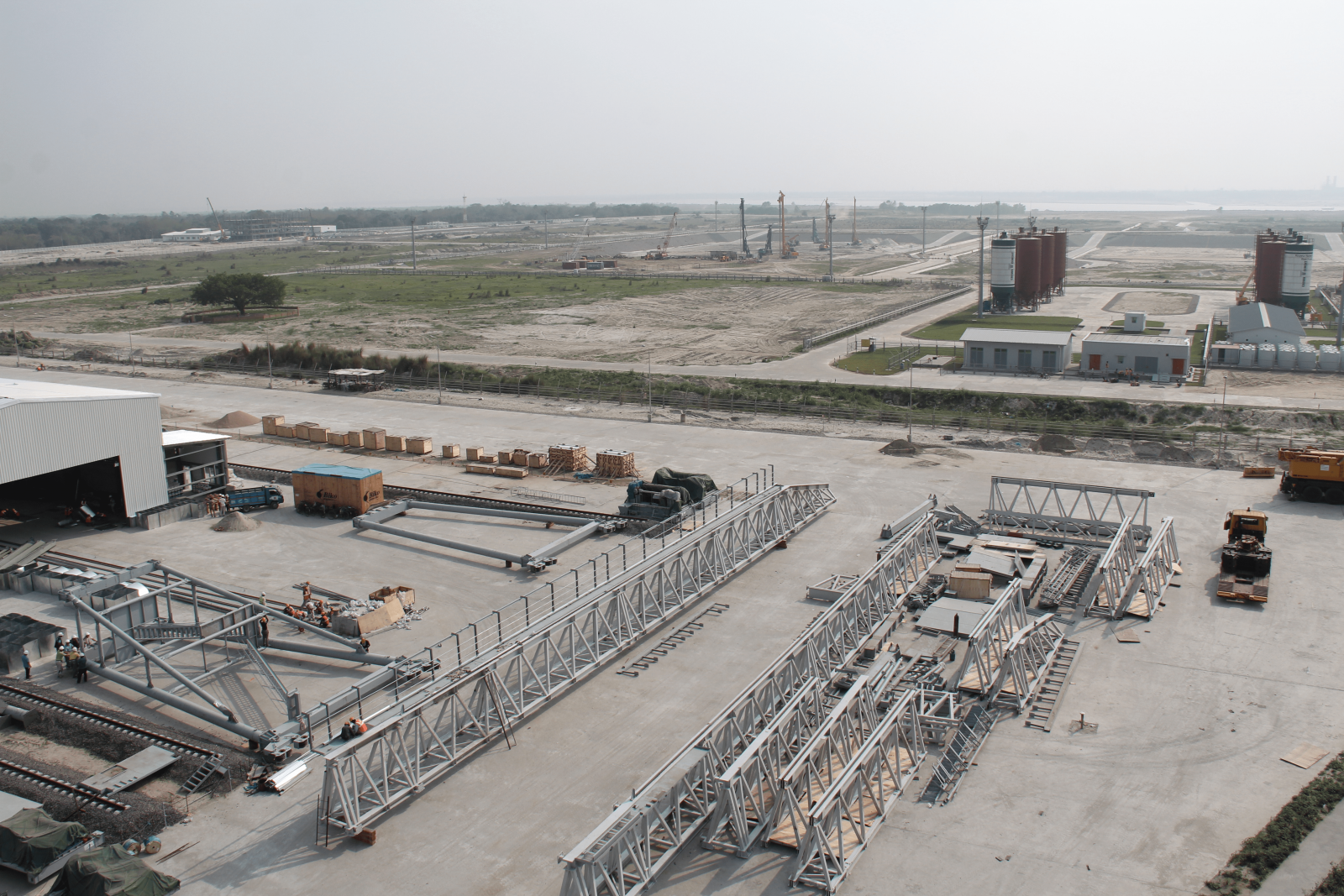The emergence of nuclear power in Bangladesh
The power plant at Rooppur will be a gateway for Bangladesh to open many more such nuclear plants in the future

Bangladesh has made remarkable progress in the last 50 years of its independence. With its growing population striving for survival comes several important questions, a very crucial one being the source of energy. Can nuclear energy be an answer to the growing energy crisis of Bangladesh at a time when other energy sources such as natural gas reserves are at the edge of depletion?
Currently, the first ever nuclear plant is being built in the country – the Rooppur nuclear power plant in Pabna, west of the capital Dhaka. Comprising two 1.2 GW nuclear power generating units each, the construction began in 2017, and unit 1 is expected to be operational by 2023. It is being built by Rosatom, the Russian state nuclear corporation and Bangladesh Atomic Energy Commission (BAEC), the leading body of atomic energy researchers of the country, will own and oversee the management of this plant.
It is often debated whether nuclear energy is good or bad, and also whether it will be advantageous to Bangladesh.
To answer this, one must understand the most promising source of nuclear energy: uranium. Uranium, a heavy "actinide" metal element, is commonly found as Uranium-238 in nature (U-238, high relative abundance: 99.274%), compared to the other uranium isotopes of the same element with different masses. Of significant interest is Uranium-235 (U-235, very low abundance: 0.72%), since it is the only fissile isotope of uranium that can be broken down into smaller elements with immense release of energy by "nuclear fission."
Nuclear fuel mostly derives from U-238, which has a ca 3-5% of U-235. When U-235 is hit with slow particles called neutrons, the U-235 atom becomes heavy, and the unstable atom undergoes fission to yield smaller elements and generates more neutrons. These neutrons then go on to propagate the same reaction further and this multiplies the 'nuclear chain reaction'.
The energy that is released in this process is equivalent to a bomb if uncontrolled, but thanks to a clever nuclear reactor design, the chain reactions can be tamed. But does uranium produce sustainable energy and ensure a clean future for Bangladesh? If the answer is yes, then we must ask where will Bangladesh get the uranium from? Do we have a mine of it?
From a geological point of view, the soil of Bangladesh is composed mainly of sedimentary rocks allowing only the mineralisation of sedimentary uranium deposits. Considerable research has been conducted into the sources of uranium in the southern region of Bangladesh around Cox's Bazar.

A report quoted that uranium levels ranging from 850.7-990.6 ppm in zircon and monazite (uranium ores) were discovered underground in Cox's Bazar, which is almost twice as high as the ores found in Sylhet and Moulvibazar in the north-eastern part of Bangladesh.
Over the last decades, extensive research has been done for the prospect of mining and extracting uranium ores from Cox's Bazar. This implies that in the future, Bangladesh may be able to provide its own nuclear fuel, provided technologies of uranium separation also flourish.
Bangladesh relies on several energy sources like biomass, coal, oil, and, overwhelmingly, on natural gas. Based on extensive research by Petro Bangla, the government-owned national oil company of Bangladesh, it was shown that the natural gas reserves of the country grew over a period of the last 20-30 years. However, this does not mean that the natural gas reserve is infinite, even though Bangladesh, being the largest delta plain, promotes the formation of such natural gas reserves.
About 62.9% of electricity here is generated from natural gas, 10% from diesel, 5% from coal, 3% from heavy oil fractions, and 3.3% from renewable energy sources like solar power.
A closer look at the numbers suggests the heavy reliance on natural gas reserves. So, there will always be a quest for new natural gas reserves, with the growth of the population by ca 1.0% every year.
But this does not mean our uranium sources are infinite compared to natural gas reserves. Of course, there is a limitation to the amount of uranium, but there are several advantages of uranium-fuelled nuclear power over natural gas-powered electricity.
We are all very familiar with global warming, and the burning of coal, oil, and natural gas all have one thing in common: the generation of greenhouse gases such as carbon dioxide and carbon monoxide. However, nuclear chain reactions do not produce carbon dioxide during nuclear fuel cycles.
Hence, although nuclear power plants can be difficult to start up or close, compared to natural gas, it provides a route toward clean and high-density energy production, meaning a small amount of uranium is sufficient to generate more energy per kg of fuel.
But radioactive waste undergoes decay and poses a radiation hazard to the environment, the effects of which can last for several thousand years. Some radioactive isotopes take longer times to decay than others, but what about uranium? In fact, it is surprising to know that U-238, is not extremely dangerous to work with, provided sufficient personal protective equipment (PPE) is in place.
It has a half-life of almost 4 billion years, which is the time taken for half of the radioactive isotope to decay, and very weakly emits alpha radiation, the least penetrating form of radiation compared to the beta and gamma.
Now, what about the radioactive waste generated at the end of the U-235 nuclear fuel cycle? Usually, the radioactive waste mostly comprises toxic nuclear weapon-grade plutonium-239, which is another heavily fissile isotope. At present, based on an agreement for Rooppur, the nuclear waste will be taken care of by Russia. The Russian company will educate and train 1,950 individuals, mainly for the operation and maintenance of the plant. The plant will boost the workforce, promote understanding of nuclear science, and bring Bangladesh on par with state-of-the-art radioactive resource-handling techniques.
Nuclear fuel recycling is very difficult and expensive, requiring complex infrastructure and the careful handling of different types of radioactive waste, which for Bangladesh might be a long-term goal. This power plant at Rooppur will be the gateway for Bangladesh to open many more such nuclear plants in the future.
Entering the realm of nuclear power producing technologies will enable Bangladesh to be energy sufficient and help on its way towards sustainability. The emergence of nuclear power in Bangladesh may be a solution to tackle its future energy crisis and to immensely support its growing population.

The author is a PhD student at the University of Glasgow (UK) specialising in synthetic inorganic chemistry of the rare earth elements. Tajrian has notably secured the champion position in the 7th Bangladesh Chemistry Olympiad 2016, held at the University of Dhaka. He targets extending his knowledge of rare earth chemistry in future by working with radioactive actinide isotopes including uranium and transuranic elements during his postdoctoral studies.
Disclaimer: The views and opinions expressed in this article are those of the author and do not necessarily reflect the opinions and views of The Business Standard.



 Keep updated, follow The Business Standard's Google news channel
Keep updated, follow The Business Standard's Google news channel
















